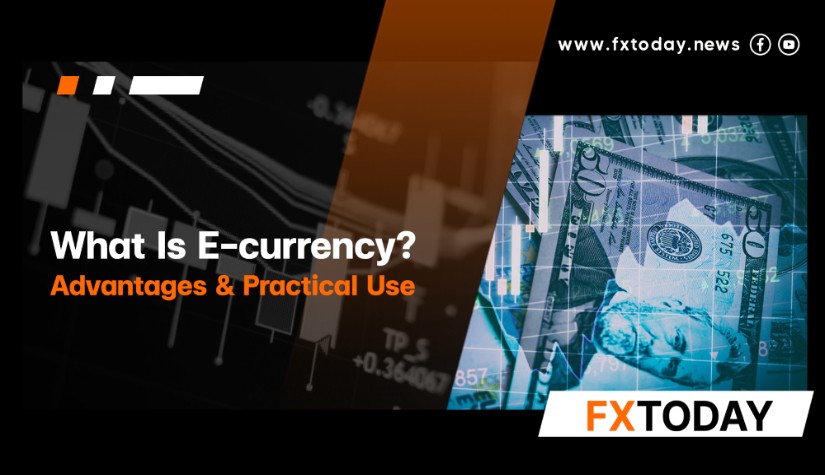At present, technology significantly impacts our everyday lives, especially within the fast-evolving financial sector. As a universal medium of exchange, money is increasingly migrating towards cashless transactions. E-Currency, or electronic currency, is a crucial part of this transformation. This article aims to discuss the concept of E-Currency, highlighting its advantages and growing importance.
What Is E-Currency?
E-Currency or Electronic Currency is a digital money alternative to traditional physical currencies. It is an electronic exchange medium backed by reserves or gold. E-Currency is mainly employed for financial transactions carried out via the Internet.
3 Types Of E-Currencies System:
1. Direct Payment System
This system enables direct money conversion from bank accounts or credit cards into electronic currency and vice versa. Notable examples of direct payment systems include Moneybookers, PayPal, Clikandbuy, AlertPay, Neteller, and Webmoney.
2. Third-Party System
Electronic currency is procured and sold via intermediaries who aid in transforming bank funds into electronic currency. Various types of electronic currencies necessitate third-party agents, each potentially charging disparate transaction fees. Examples of third-party systems include Webmoney, Pecunix, E-Gold, C-Gold, E-Dinar, Pecunix, and Liberty Reserve.
3. Voucher Card System
This system facilitates the use of electronic currency across all systems and resembles prepaid cards. Users purchase vouchers or slips from authorized distributors with cash. The utilization of different systems is contingent upon the user's geographical location. Voucher cards are popular in the European region and can be effortlessly purchased from self-service terminals or ordinary convenience stores. Each voucher or card carries a specific financial value and a code for input into the electronic currency account. Examples of voucher card systems include Webmoney, Ukash, Paysafecard, and CashU.
Types of E-Currencies
Some E-Currencies are tied to the price of gold, meaning their value fluctuates with global gold prices. Conversely, other E-Currencies, such as E-Bullion, allow choosing between a value tie or value independent of gold.
Here are some examples:
1. E-Currencies With Value Tied to the Price of Gold:
- E-Gold
- C-Gold
- E-Bullion
- Pecunix
- E-Dinar
2. E-Currencies With Value Independent of the Price of Gold:
- Webmoney
- Perfectmoney
- Okpay
- PayPal
- Neteller
- Skrill (Moneybookers)
- Payza
- Paysbuy
- CashU
E-Currencies that are tied to the price of gold mean that their value fluctuates based on the global market price of gold. If the value of gold increases or decreases in the market, the value of these E-Currencies will correspondingly increase or decrease. However, there are E-Currencies like E-bullion that offer the option to choose between a value tied to the price of gold and a value independent of the price of gold.
E-Currency in Forex Trading
In Forex trading, E-Currency denotes online digital currencies actively traded on various markets. While they may not be widely recognized or supported by conventional banks globally, they hold value in the digital world and are subjected to real trading activities. Bitcoin (BTC) and Litecoin (LTC) are prominent E-Currencies that have gained substantial popularity.
Benefits of E-Currency Trading
Diverse Currency Options: E-Currencies present a range of currency options, facilitating traders to engage in varied trading opportunities.
24/7 Trading: E-Currencies enable round-the-clock trading activities, offering convenience to traders irrespective of their geographical location.
The Difference Between E-currency and Cryptocurrency
Design: E-Currencies are developed by financial institutions or entities adhering to their respective countries' payment laws. Conversely, anyone can create a cryptocurrency without necessarily needing a financial institution.
Financial Transactions: E-Currency transactions typically involve banks, requiring fund deductions from bank accounts. Cryptocurrencies, in contrast, operate on a peer-to-peer basis, recording transactions on a blockchain.
Conclusion
E-Currency, a form of digital money, plays a significant role in internet-based financial transactions. It is available in three formats such as, Direct Payment, Third-Party, and Voucher Card systems, allowing for diverse and round-the-clock trading in the forex industry.
However, distinguishing E-Currency from Cryptocurrency is crucial in terms of design and transaction methods. Users are advised to educate themselves thoroughly to avoid confusion and ensure effective usage.
______________________________
Maximize your knowledge: Blog
Keep up to date on global events: News
Updated
1 year ago
(May 31, 2023 11:29)
